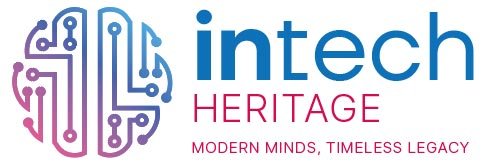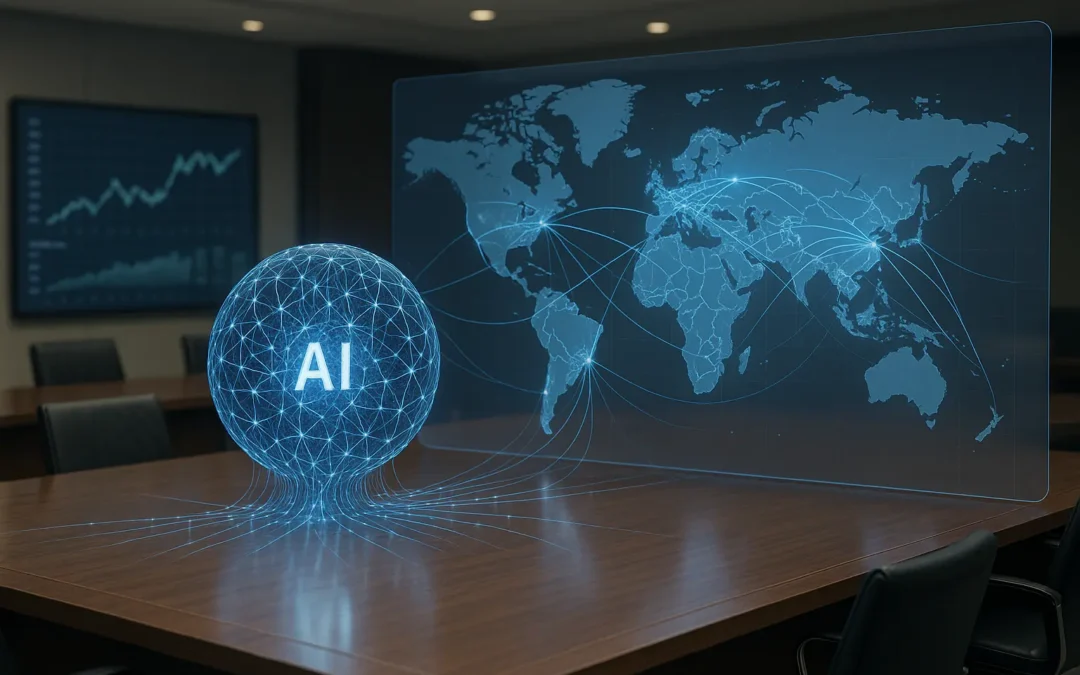In the dynamic business ecosystem, artificial intelligence has transcended its role as a back-office tool to become a strategic partner in the boardroom. For years, automation has been the protagonist, optimizing processes and cutting costs. However, we are on the threshold of a much more profound revolution: the shift from simple task execution to autonomy in decision-making. At Intech Heritage, we don’t just build software; we architect the future of business intelligence, and understanding this evolution is critical.
The distinction is crucial and is perfectly illustrated by the aviation analogy. Automation is the autopilot. Its function is to execute a set of pre-programmed rules (if X, then Y) within a stable environment. It maintains altitude, speed, and heading. This is the domain of RPA (Robotic Process Automation) and scripts: incredibly efficient for repetitive tasks, but fragile in the face of uncertainty. If conditions change drastically (an unforeseen storm, a mechanical failure), the system disengages and requires immediate human intervention. Automation optimizes the known; it cannot navigate the unknown.
An autonomous AI agent, in contrast, is the flight captain. Its directive is not a series of rules, but a complex objective: “get the passengers to their destination as safely, quickly, and efficiently as possible.” To achieve this, it perceives its environment through multiple data streams (radar, weather reports, air traffic control communications, aircraft sensors), reasons about that information, predicts potential scenarios, and makes proactive decisions. If a storm arises, it doesn’t just alert; it evaluates alternative routes, calculates the additional fuel consumption, considers potential delays, and chooses the optimal option to meet its primary goal. It learns from every decision, becoming more expert with each flight.
Advanced Use Case: The Autonomous Supply Chain Agent
Let’s move beyond theory. Imagine an AI agent managing a multinational’s supply chain. Its goal is not a simple inventory rule, but a strategic directive: “ensure operational resilience and 99% product availability while minimizing working capital tied up in stock.”
This agent integrates and processes in real-time:
- Sales data and consumption patterns down to the zip-code level.
- Global weather forecasts and maritime traffic data.
- News on geopolitical tensions and tariff changes.
- IoT sensor data on the location and condition of containers.
- Financial reports from suppliers to assess insolvency risks.
When the agent detects that a key supplier in Southeast Asia is facing port strikes, it doesn’t just generate an alert. Autonomously, it:
- Assesses Impact: It calculates which product lines and markets will be affected and over what timeframe.
- Models Solutions: It analyses alternative logistics routes, evaluates the capacity of pre-vetted secondary suppliers, and considers reallocating stock between continents.
- Acts Proactively: It initiates a purchase order with the secondary supplier to cover 70% of the projected shortfall, reroutes two vessels in transit to less congested ports, and dynamically adjusts digital marketing campaigns in the affected regions to moderate short-term demand.
- Communicates: It generates an executive report with the decision made, the projected financial impact, and updated risk metrics for the management team.
The Strategic Impact: From Operators to Orchestrators
The transition to autonomous agents redefines the role of human talent. Employees shift from being process operators to becoming strategists and orchestrators, overseeing an ecosystem of AI agents. Human work is elevated to defining objectives, managing complex exceptions, and innovating business models. Companies that embrace this vision will not only be more efficient; they will be exponentially more agile, resilient, and capable of capitalizing on opportunities their competitors cannot even see.
This is not a distant future. It is the technological reality that leading companies are implementing today. Automation helped you do things right. Autonomy will allow you to do the right things, at the right time, every time.
AI agents are the future of efficiency. If you want to be at the forefront, send me a direct message to discuss the possibilities.

